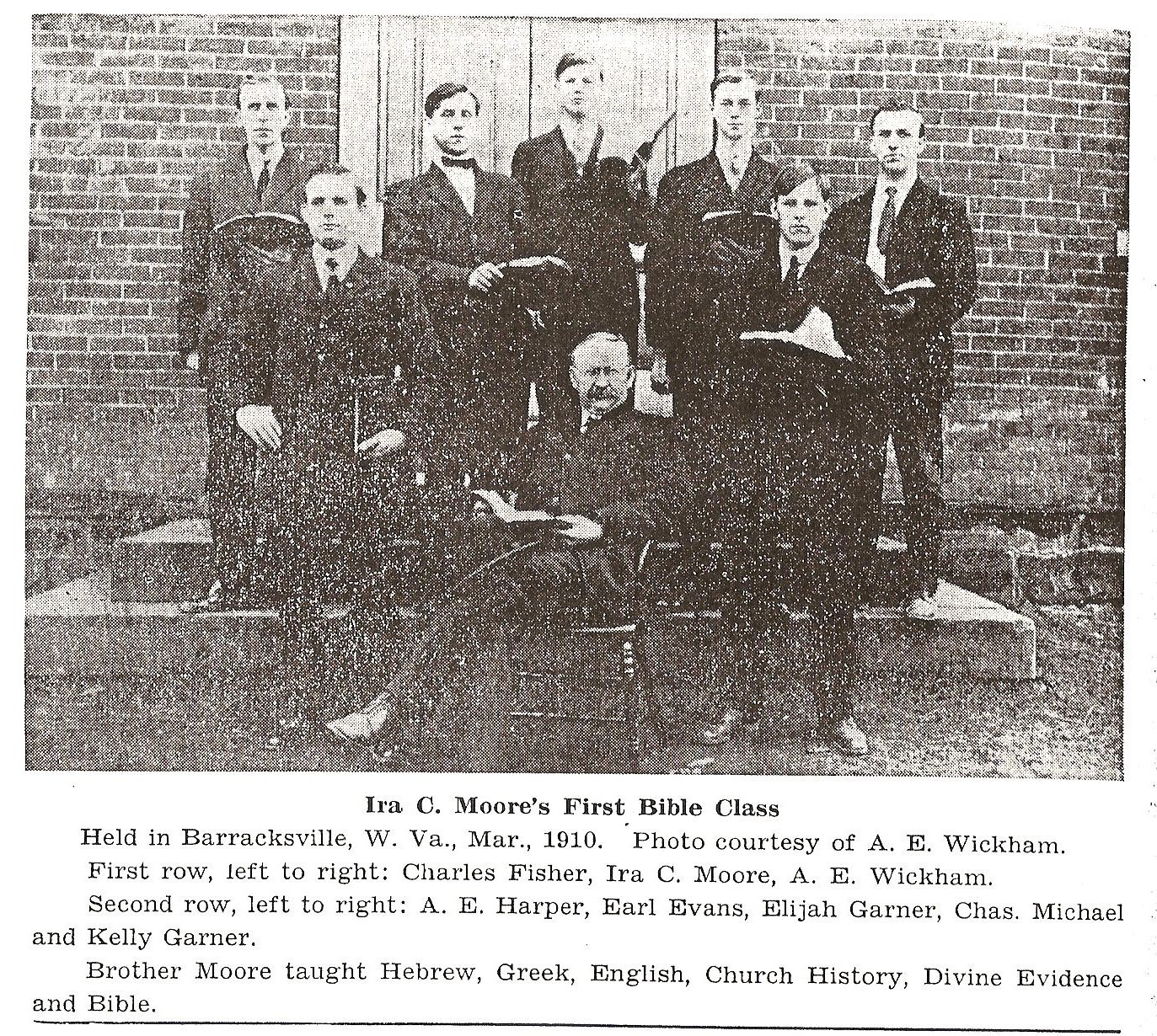Where Do Preachers Come From?
Bruce's Beat
6-2-2015
I do not have the latest statistics on how many Bible majors have graduated from our Christian colleges, universities, and preacher training schools, but I do know that world population keeps increasing, thus we need more preachers, teachers, evangelists and missionaries. The Lord saw the spiritual condition of the people of His day and He described them as being "scattered like sheep without a shepherd." But rather than being pessimistic, He saw the situation as an opportunity. "The harvest is truly plentiful but the laborers are few. Therefore, pray the Lord of harvests to send out laborers into His harvest." (Matt. 9:35-37).
In 1865, J. W. McGarvey submitted an article to Lard's Quarterly which basically asked the same question as this article. McGarvey's insights are just as instructive today as they were 150 years ago. McGarvey began by asking "What kind of education should preachers have?" (McGarvey,). McGarvey said that there were three essential elements: 1) knowledge of the word of God; 2) proper moral training for ministry; 3) and a general liberal arts education.
McGarvey pointed out the defects of the situation in his day, which was basically a critique of the preparation for ministry he had received at Bethany College. He said that the churches were relying on the colleges to supply preachers. But the colleges were inadequate for turning out enough preachers to meet the demand. The expense of going to college for ministerial training excluded poor men and older married men with families. The spirituality and maturity of both groups was potentially better than the wealthy young men enrolled for ministry. McGarvey decried the lack of Bible training he had received. He had received almost no practical training in preaching, which was not surprising since Campbell was more of a lecturer than he was an evangelist. McGarvey also said that the college climate was not conducive for creating a moral and spiritual environment necessary for ministerial preparation.

Bethany College
McGarvey proposed a remedy for these defects. The solution would be led by a faculty totally engaged in religious activity. "Only he who has done the work himself, and done it well, is competent to say how it should be done." The curriculum would be modified to focus on training in Bible. And a separate college should be created for instruction in ministerial preparation. McGarvey said, "Properly conducted it may prove a source of incalculable good; but it may be inaugurated and conducted in such a manner to produce consequences most disastrous." The statement proved to be prophetic in light of what happened at the College of the Bible while McGarvey ran the school and after his decease.
Where do preachers come from? After the division in the Restoration Movement, churches of Christ were left with only Lipscomb and Harding's Bible school as a place turning out preachers. For those who could not go to Nashville there were only two possibilities. Find a veteran preacher who would be willing to share his experience and wisdom. This was the way Ira Moore trained preachers at Barrackville, West Virginia.

Older preachers encouraged young men to become preachers. Fred Dennis paid this tribute to C. D. Moore at his funeral: "He was my 'Paul' in the gospel. When I was contemplating entering the evangelistic field it was Dora Moore who encouraged me above all others." (Dennis, 2). It was also the way Marshall Keeble would pass on training to his "sons."

The other way was self training. Many a good man, growing up in the Ohio Valley in congregations without a located preacher, developed in this way. Usually, he would be approached about teaching a class or presenting a sermon. Zeal would prompt the first efforts, but after a few lessons, the realization became "I need more soap!" Casual study of the Bible was replaced by greater dedication and diligence. On their own, and with a few books or bound copies of the Gospel Advocate or Millennial Harbinger, they increased their Bible knowledge and effectiveness in sharing the gospel. And in the first half of the 20th century, these preachers with limited training and little resources, advanced with great zeal and sacrificial labor and enjoyed great response to their preaching of the gospel.
Where do preachers come from? Godly upbringing in homes that love the Lord form the foundation. Timothy was raised in a less than ideal situation, but "from a child you have known the Holy Scriptures which are able to make you wise to salvation, through faith in Christ Jesus." (2 Tim. 3:15). Good congregations where elders lead the way in teaching God's word and encouraging men to become trained teachers are vital. It is interesting to see congregations that have produced several preachers through the years and also observe some congregations that have never produced a preacher or a missionary. Wives who are a true help meet for their husbands are also needed. What is her reaction when he comes home and says, "I want to preach?" or "I want to go to the mission field?" Wives who will have the spirit of Rebekah and are willing to leave home and family are needed too. (Gen. 24:58).
There is no one answer to this question. Christian colleges and universities will continue to supply ably trained men who have a more academic calling. Preacher training schools will continue to offer practical training for congregational ministry, especially for those who cannot afford a 4-6 year university education. And there will still be older men taking younger men under their wing for training. "And the things you have heard from me, among many witnesses, commit these to faithful men who will be able to teach others also." - 2 Tim. 2:2.
Works Cited
Dennis, Fred. "Commodore Dupont Moore" Christian Leader 46 (Oct. 17, 1933):2
McGarvey, J. W. "Ministerial Education" Lard's Quarterly vol. 2 (April 1865):239-250
